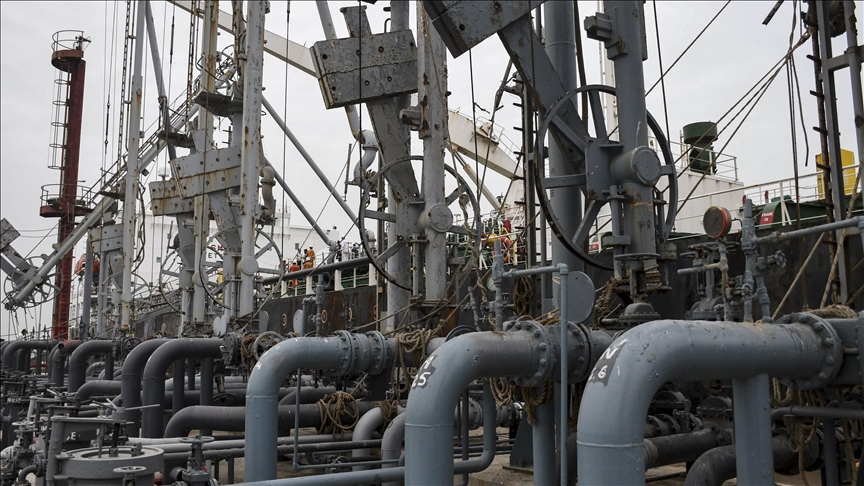Syria in search for regional cooperation in energy after Iran halts oil shipments
Potential moves by Saudi Arabia, Qatar, UAE to cooperate with Syria may tip balance in regional energy relations, lessening Iran’s influence, experts say

ANKARA
Syria is in search for regional cooperation after Iran halted oil shipments to Damascus following the end of the 61-year Baath regime, further worsening the country’s ongoing energy crisis.
Syria’s civil war left no transparency for business and international sources say that the Assad regime got about 90% of oil from Iran, accounting for 60,000 to 70,000 barrels per day, and the remaining 10% was procured from the country’s own oil fields.
Western countries cut diplomatic relations with Syria since the start of the civil war in 2011 and imposed numerous sanctions and restrictive policies on its energy sector, prompting the country to almost completely depend on Iran for fuel, but Iran’s recent suspension of oil shipments brought production at Syria’s largest oil processor in Baniyas to a standstill.
The possibility of Saudi Arabia and Qatar providing Syria instead of Iran came to the fore, which could be considered a strategic move to reshape regional energy balances.
Qatari Minister of State Mohammed bin Abdulaziz Al-Khulaifi visited Damascus and met the leader of the new Syrian administration, Ahmed al-Sharaa.
Saudi Arabia and Qatar’s potential moves in Syria’s energy sector are not limited to finding a solution to the crisis. Iran’s declining influence could give opportunity to Gulf states to enter into greater cooperation in Syria’s energy supply.
No official announcement has been made but experts believe such developments could usher in a new era in Syria’s regional energy relations.
'Saudi Arabia can fill gap Iran left in Syria'
Gokhan Ereli, coordinator of Gulf studies at Turkish think tank ORSAM, told Anadolu that a strategic move could be made to tip the energy balance in the region, and Saudi Arabia could fill the gap Iran left in Syria.
“Sources close to the Saudi Arabian media said that the country may take responsibility for Syria’s lack of access to oil and this move could contribute to the strengthening of diplomatic relations between the new Syrian government and the Gulf states,” he said.
“Qatar’s investments in power plants and the energy infrastructure are in line with the policies of the Gulf countries to increase energy integration with Syria’s energy sector and Qatar’s investments will contribute to strengthen the country’s influence in the region,” he added.
Giorgio Cafiero, CEO of Gulf State Analytics, told Anadolu that it is in the common interests of Gulf countries to stabilize Syria, help protect the country’s territorial integrity, and ensure its longevity.
Cafiero stated that Türkiye’s commitment to this perspective is a testament to the wide range of opportunities for cooperation between Türkiye and Gulf countries for “New Syria,” noting that the energy sector will play a key role in stabilizing the country.
He mentioned that Gulf states, Saudi Arabia and the United Arab Emirates in particular, are concerned about Syria’s future and they view the fall of the Assad regime as an opportunity to reduce Iran’s influence in the region and return Syria back under the influence of other Sunni Arab states.
He highlighted that the Qatar-Türkiye natural gas pipeline project, proposed in the 2000s, could be back on the agenda when the situation in Syria stabilizes.
Cafiero added that the pipeline through Syria would strengthen the regional energy cooperation and greatly contribute to the reconstruction efforts.
*Writing by Emir Yildirim in Istanbul
Anadolu Agency website contains only a portion of the news stories offered to subscribers in the AA News Broadcasting System (HAS), and in summarized form. Please contact us for subscription options.







